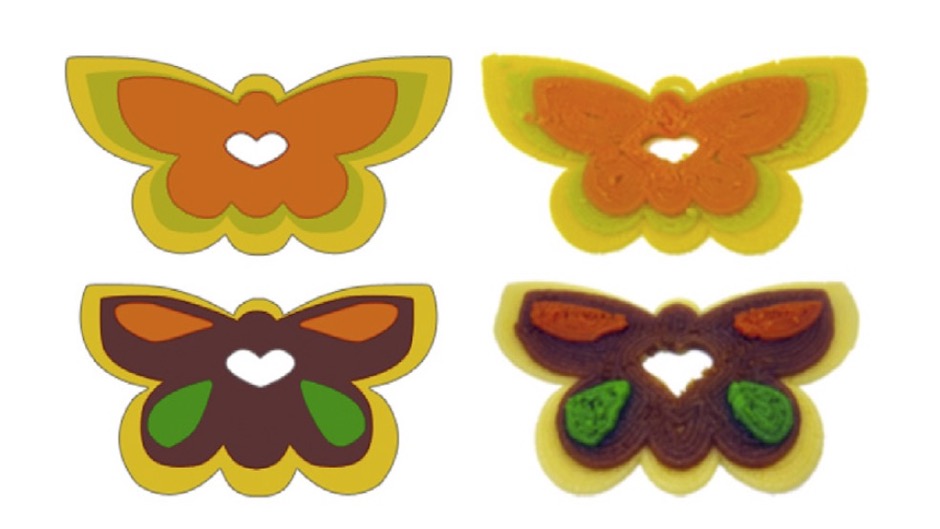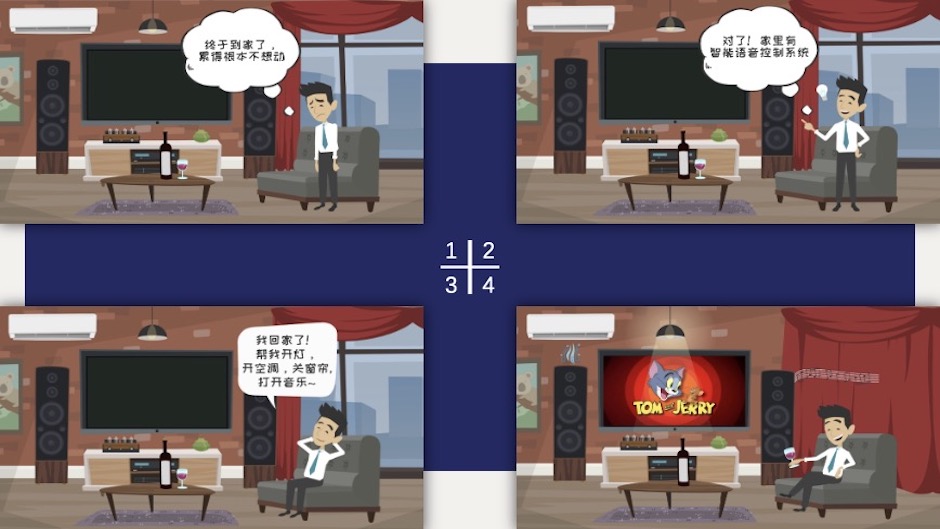08 Jun 2022
Two research articles by Xi'an Jiaotong-Liverpool University's Dr Jie Sun were consistently listed by Clarivate Analytics as highly cited papers in the past five years.
Clarivate's essential science indicators (ESI) report indicates the top 1% of papers in a subject area based on the number of citations received compared to other papers published in the same field in the same year.
In the past 10 years, the application of 3D printing technology has gradually expanded to food processing with the emergence of 3D food printing.
The research papers from Dr Sun, at the Department of Mechatronics and Robotics at the School of Advanced Technology, are at the forefront of 3D food printing technology, which is why they have been highly cited by other researchers.
Multiple material cookies 3D model and the printed cookies
When Dr Sun originally published her work, there was very little existing research on 3D food printing. The articles presented interesting visions and perspectives on the future of this technology, such as potential applications and related technologies that could bring major breakthroughs in food printing.
According to Dr Sun, 3D food printing uses liquid or semi-solid edible materials, such as chocolate sauce, flour paste, jam and nutrient supplements, as “ink”. These ink ingredients are put into a 3D printer in a certain ratio to mix and print cookies, cakes and other food. The printer then bakes it to produce food that can satisfy the body's nutritional requirements and is also appetising. Therefore, customisation is one of the features of food printing.
Potential applications
“NASA originally proposed food printing, and the technology is therefore considered as having great potential in aerospace,” says Dr Sun. “Currently, astronauts eat freeze-dried food in space, but the options are limited. If we could bring 3D printers into space, they could combine a variety of ingredients to create gourmet food that astronauts could enjoy.
“The technology will also be useful for the elderly as a balanced diet is important for their health, yet many seniors can only eat soft food like cereal and porridge. Some studies have shown that a lack of variety in a person’s diet may have a negative effect on their mood. If we use 3D printing technology, food can be designed that has a soft texture that the elderly can chew and digest easily while receiving an adequate intake of essential nutrients,” continues Dr Sun.
“In the future, food printing technology may be able to expand our food sources. For example, if a country is affected by famine, researchers may be able to increase crop production and also expand the range of food ingredients available.
“For instance, rice husk is very nutritious but has a poor taste. We cannot eat it directly. With the help of 3D printing, it is possible to turn it into powder first, add it to some food to ensure nutrition and taste, and increase the amount of food,” Dr Sun explains.
“Also, as people become more and more concerned about their health, they embrace the idea of ‘light' eating, which means customising their meals based on some precise data that is not entirely taste-oriented but also health-oriented.
“Food printing has many promising applications, and we hope to see it used more widely to help people live healthier lives,” says Dr Sun.
The papers, An Overview of 3D Printing Technologies for Food Fabrication, and Extrusion-based food printing for digitalized food design and nutrition control, can be read online.
About the researcher
Dr Jie Sun got her PhD degree from the National University of Singapore. She joined XJTLU in 2015, and is currently a Senior Associate Professor and the acting Head of the Department of Mechatronics and Robotics. She has more than 20 years’ broad academic working experience in China and Singapore.
By Huatian Jin
Edited by Catherine Diamond
08 Jun 2022
RELATED NEWS

Sustainability: Solar power with Dr Jieming Ma
In part two of our sustainability series, Dr Jieming Ma of the Department of Computing talks to us about his research into intelligent robots and alternati...
Learn more

Two undergraduate teams win top prizes at CIMC
In the finals of 2021 Siemens Cup China Intelligent Manufacturing Challenge (CIMC), two undergraduate teams from Xi’an Jiaotong-Liverpool University won the ...
Learn more








